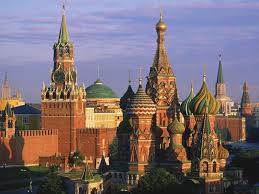Russia will spend $ 200-250 million to develop offensive cyber weapons
Offensive cyber weapons are malicious programs like Stuxnet and Flame that have long been used by the United States for infrastructure damage and spying.
 Russia plans to significantly increase the arsenal of tools for cyber attacks and increase the staff of hackers. This is necessary to fulfill the role of deterrence against the background of similar actions by the United States, by analogy with the doctrine of "nuclear deterrence," reports the magazine SC Magazine UK. The doctrine of deterrence implies the creation of offensive weapons, not in order to use it, but in order to deter a potential adversary from using the same weapons.
Russia plans to significantly increase the arsenal of tools for cyber attacks and increase the staff of hackers. This is necessary to fulfill the role of deterrence against the background of similar actions by the United States, by analogy with the doctrine of "nuclear deterrence," reports the magazine SC Magazine UK. The doctrine of deterrence implies the creation of offensive weapons, not in order to use it, but in order to deter a potential adversary from using the same weapons.The size of investment in this area is not officially disclosed, but sources close to the Russian defense minister call SC Magazine UK figures from $ 200 million to $ 250 million a year.
Particular attention will be paid to the creation of viruses to attack the command centers of the armed forces of the enemy, as well as elements of critical infrastructure, including the banking system, power plants and airports of the enemy.
The representative of the FSB, on condition of anonymity, said that the development had begun in response to similar plans that the United States officially announced in 2015.
')
In March 2015, Admiral Michael Rogers (Michael Rogers), head of the NSA and the US Cyber Command (US Cyber Command), announced a significant increase in military capabilities in cyberspace. At the same time, he named several countries that represent the main threat to US state security in the field of IT: this is North Korea, China, Iran and Russia.
The same representative of the FSB added that most countries are trying to avoid any conflict in cyberspace, but the United States is dispersing the arms race in this area.
However, some experts are not quite sure that the doctrine of “nuclear deterrence” is applicable to cyber weapons. Valery Yashchenko, deputy director of the Institute of Information Security Problems at Moscow State University, talks about the difficulty of creating such deterrent forces, because the use of such weapons does not imply mutual destruction. In addition, the source of the attack is always carefully masked and cannot be reliably determined even by the best experts.
Dmitry Mikhailov, head of the Center for Cybersecurity at the National Research Nuclear University MEPhI, is confident that Russia does not lag behind the United States in the field of military computer technologies: “Russia has experienced some problems with computer security, but our hackers are among the best in the world. In the case of cyber attacks, the most important is not in the material values, but in the skillful use of mathematical algorithms. We have great potential in this area. ”
Source: https://habr.com/ru/post/390171/
All Articles